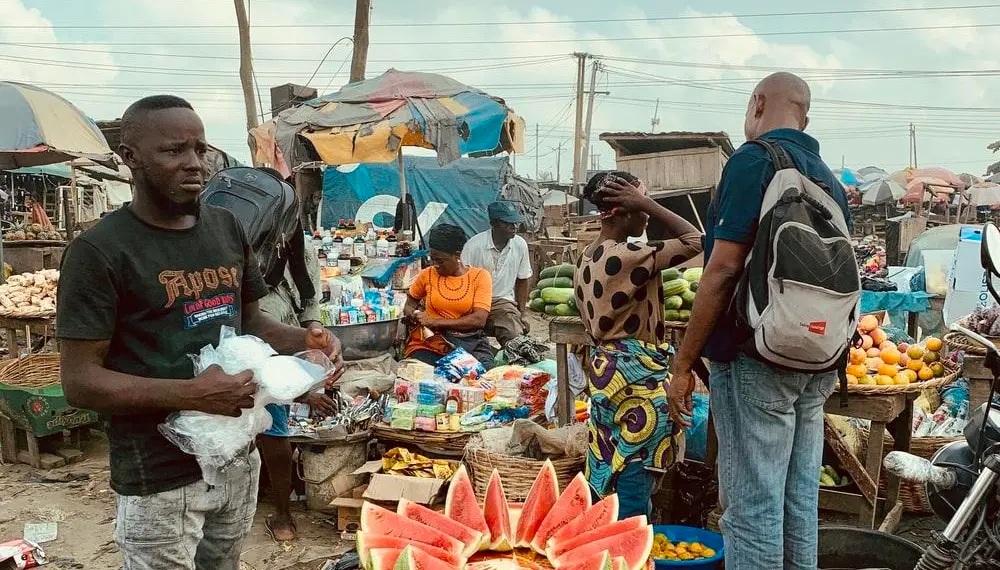The results of the twelfth round of the Nigeria COVID-19 National Longitudinal Phone Survey on the job aspirations of urban and rural youths raise critical policy questions about the country’s achievement of the sustainable development goals (SDGs).
The COVID-19 National Longitudinal Phone Survey (NLPS) is a monthly survey of a nationally representative sample of 1,950 households launched by the National Bureau of statistics with the support of the World Bank to monitor the socio-economic impact of the pandemic and other shocks.
According to the survey, 22% of young people aged 15 to 22 want to be traders or business owners when they reach the age of 30. When compared to becoming a doctor, engineer, or tailor, this is the most commonly reported dream job. It is also the most common among various subgroups of youth, such as by sex or consumption quintile.
-1708865927.png)
Source: National Bureau of Statistics
The job aspiration of youths according to the NLPS reflects the ever-increasing importance of the informal sector in Nigeria.
According to the International Labour Organization (ILO), the informal sector consists of unincorporated household businesses, informal owned businesses, and informal employers’ businesses. The informal sector also includes both registered and unregistered workers and businesses.
A recent report posits that more than 65% of the active population in Nigeria belongs to the informal sector. The sector which is classified into micro, small and medium enterprises (MSMEs), accounted for approximately 65% of Nigeria’s GDP and generated over 59 million jobs in 2017. Typical examples of enterprises classified as informal include farmers, traders running market stalls, hairdressers, minibuses, waged labour, private clinics and pharmacies.
Onokala and Banwo note that the failure of public institutions in job creation is a major contributor to the dominance of the informal sector in Nigeria, as most people respond to the job deficit in the formal sector by engaging in informal activities to sustain their livelihood.
For Ossai and Nwalado, the lack of knowledge and skills needed for employment in industries and public establishments contribute to the dominance of the informal sector.
Besides, the capital intensive nature of formal higher education makes most people unable to access the training in colleges and univeristies, and acquire the skills needed to take up jobs in the formal sector.
Whatever is responsible for the tendency of Nigerians to seek work in the informal sector, there is a need for the strategic policy by the government to translate the employment potentials there for growth and development.
According to Liu in his policy brief on the role of micro-small and medium enterprises in achieving SDGs, “the critical contribution of MSMEs to broader socio-economic objectives, including job creation makes them a key priority area for achieving the Sustainable Development Goals (SDGs).”
Mr Liu went on to say, “Job creation through MSMEs will frequently directly benefit the poor and vulnerable, particularly women and youth, thereby directly reducing poverty, increasing income, and positively impacting household investments in education and health over time.”
He continued, “MSME development has the potential for wide-reaching impacts on the SDGs globally, including SDG 1 (end poverty), SDG 2 (zero hunger), SDG 3 (good health and well-being), SDG 5 (gender equality), SDG 8 (promote inclusive and sustainable economic growth, employment and decent work), and SDG 9 (improve sustainable industrialization and fostering innovation).”
According to the National Bureau of Statistics’ 2017 micro, small, and medium enterprises (MSME) national survey report, high fuel prices, taxes, and power supply are the operating environment challenges for medium enterprises that necessitate mitigating policies.
For Ogunmodede, Ogunsanwo and Mayong, in a research on the impact evaluation of the N-Power Agro empowerment program in Nigeria, upscaling the N-power program and wider implementation collaboration with youth, rural communities and private sectors is one way to ensure that the government can develop capacities of youths for entrepreneurship, and hence, increase job creation.



-1708865927.png)